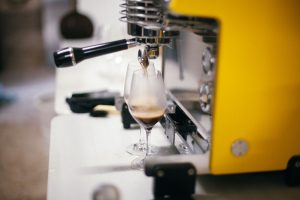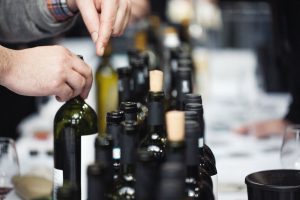COFFEE AND WINE
“Variety”, “terroir”, “micro-climate”, “the producer’s hand”, all of these concepts sound pretty familiar if you know something about wine, right? Well, believe it or not but they are just as important in the production of coffee, especially when we talk about the sensory characteristics that we find in the final cup.
It is quite common that people ask us coffee professionals about the coffee of Central America or Africa, about its taste and production but the truth is if I ask you “What does the wine of France taste like?”, wouldn’t you be a bit confused? Which wine region are we talking about, Bordeaux, Rhone Valley, but what about the producer, they’re all different!
Yes, well, so is coffee.
As it is an agricultural product, the varieties can be very different, the soil, sun or shade, high or low altitudes influence greatly what the plant physiologically produces for its survival – higher or lower sugar content, the quantity of polyphenols and acids, which will automatically influence its processing time and developed substances ergo the espresso that you will get in the end of the production chain.
The big difference between wine and coffee producers is their economical capability of investing in their production facilities and in research, so coffee has remained in its embryonic state if compared to oenology and could be considered a more artisanal way of doing things.
Washed coffee, for example, when fermented in big water tanks could use some pre-selected yeasts for a more controlled fermentation (ongoing researches are happening but still not widely in use), supervise the temperature and time, adjust the process each year based on the harvest, but instead everything still mostly happens in a very ancestral way – in some places farmers just put a wooden stick in the tank to see if the mucilage has already detached from the beans, very little scientific I’d say. But I suppose coffee farming and processing in many cases is very much like natural wine that is becoming quite fashionable in the last years, based on biodynamic farming, indigenous yeasts and as little technical, chemical interference. Which definitely gives the sensory part even more significance as each farm, soil, microclimate will have slightly different characteristics that will give the plant different properties and the cherries will be covered with different yeasts that will produce different flavours. I think that is the REAL representation of the terroir, so give it a go and taste some microlot coffee from a specific area or farm to see their incredible variety and flavours just like you would taste a spectacular Pinot Noir from some natural wine producer from Alsace.
And I’d suggest you check out the wine and the coffee flavour wheels. The many descriptors look pretty similar, don’t you think?










